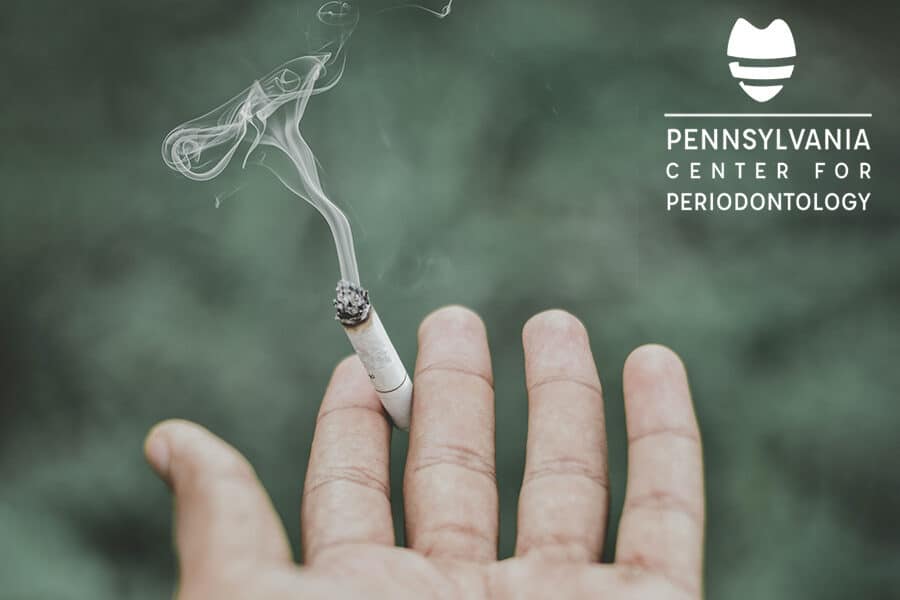According to the Center for Disease Control (CDC), 34.1 million people smoke in the United States, which is 14% of the population. According to the CDC, smoking causes many diseases and reduces users’ overall health. One of the diseases that smoking causes is periodontitis, a serious gum infection that can cause tooth loss and affect overall health.
According to the National Institute of Dental and Craniofacial Research, smoking is the biggest risk factor for gum disease. That risk increases depending on how long and how much a person smokes. This means that smokers, especially heavy smokers have a higher rate of gum infection, jawbone deterioration, and tooth loss. Simply put, the more and longer you smoke directly increases your risks of gum infection and tooth loss.
Why Are Smokers at Higher Risk of Gum Disease?
Smokers are at higher risk of gum disease because smoking causes the following:
- Dry Mouth – Smoking creates a dry environment in the mouth, which makes harmful bacteria more easily attach to your teeth and under your gums.
- Weakened Immune Response – Smoking weakens your immune systems, which makes it harder for your body to fight the harmful bacteria that cause gum infections like periodontal disease.
- Poor Circulation – Smoking causes vasoconstriction, which is a constriction of the blood vessels. Gum tissue needs good circulation to stay healthy and resist infection and gum recession.
How Does Smoking Make Gum Disease Worse?
Smoking can make gum disease worse not only because it weakens the immune system’s ability to fight disease, but also because it hinders healing. That means that even if you practice good home care, the disease still progresses in most cases. Worse, you may not respond well to periodontal treatment as a smoker.
Smoking also masks early signs of gum disease. For example, because smoking causes vasoconstriction, smokers who have gum disease might not see bleeding when they brush or floss. That can cause a false sense of security that may cause a delay in noticing the gum problem and seeking treatment.
Do You Want to Quit Smoking?
Quitting smoking can significantly reduce your risks of developing gum disease. If you already have periodontal disease, being a non-smoker increases your chances of stability after periodontal treatment.
While 70% of smokers want to quit, only 6% quit on their own. If you are part of the 70%, we can help! Many resources are available to help you become a non-smoker such as various tips from former smokers and state programs such as the PA Free Quitline.
Many dental professionals are even specially trained to help guide you to the right resources for smoking cessation. So, next time you come in for your next dental visit, ask us how we can help you become smoke-free!
